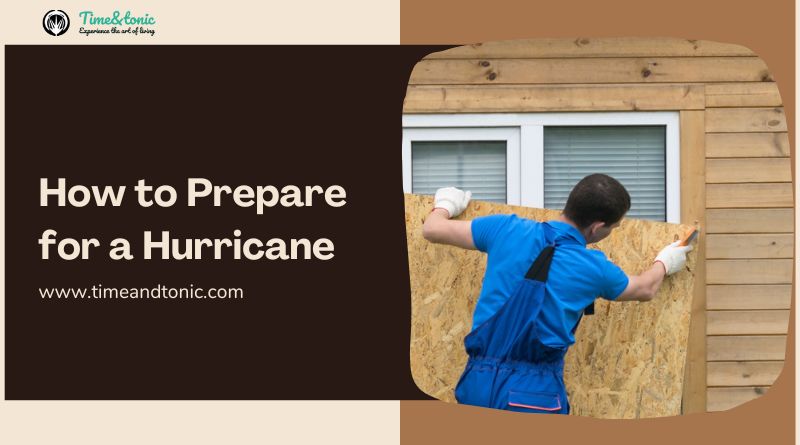How to Prepare for a Hurricane: Essential Steps to Keep Your Family Safe
The raw power of nature can be awe-inspiring and humbling, and few natural phenomena embody this force quite like a hurricane. These massive storms, with their swirling winds and torrential rains, have the potential to cause significant destruction and disruption. However, in the face of this formidable adversary, preparation is our greatest ally.
In this comprehensive guide, we delve into the essential steps to help you prepare for a hurricane. Whether you reside in a hurricane-prone region or are simply planning for a potential emergency, the knowledge and strategies you’ll find here can be a lifeline in times of crisis.
From creating a robust emergency kit that covers your basic needs to securing your home and valuables, we leave no stone unturned in our quest to ensure your safety and well-being. We’ll discuss evacuation plans, communication strategies, and the importance of staying informed through weather updates. Moreover, we’ll explore the psychological aspects of hurricane preparedness, helping you and your loved ones stay calm and resilient when facing the storm’s fury.
How to Prepare for a Hurricane
1. Stay Informed

Monitoring and Early Alerts
Preparing for a hurricane begins with knowing what to expect. Keep a close eye on local news, radio broadcasts, and official weather sources for regular updates on the hurricane’s progress. Early alerts can provide you with valuable time to prepare and make informed decisions.
Also Read:- Superfood Snacks
2. Create a Hurricane Emergency Kit

Be Self-Sufficient for 72 Hours
Prepare a hurricane emergency kit well in advance. Include enough food, water, and other necessities to last your loved ones at least 72 hours in this kit. Food that won’t go bad, water, a first-aid kit, flashlights, batteries, personal hygiene items, important documents, and medications are all recommended. If you have pets, don’t forget to pack for them as well.
3. Develop an Evacuation Plan

Safety First
In the event of a hurricane, having a well-thought-out evacuation plan is crucial. Identify local evacuation routes and the nearest shelters. Plan in advance where you will go if you need to evacuate your home. Ensure that everyone in your family is aware of the plan and knows where to meet if separated.
4. Secure Your Property

Reduce Potential Hazards
Before a hurricane strikes, take proactive measures to secure your property. Trim trees and bushes around your home to minimize potential debris during the storm. Reinforce windows and doors to withstand high winds. Move outdoor furniture, decorations, and other loose objects inside or to a safe storage location.
5. Communicate

Stay Connected with Loved Ones
Establish a designated family communication plan. Ensure that every family member has a way to stay in touch, such as mobile phones, walkie-talkies, or two-way radios. Designate an out-of-town contact that everyone can check in with to report their status. This person can act as a central point of communication in case family members are separated during the hurricane.
Final Words
In conclusion, preparing for a hurricane is not just a matter of chance; it’s a proactive and responsible step that can make all the difference in safeguarding lives and property when the storm strikes. Throughout this comprehensive guide, we’ve explored the essential steps to ensure you and your loved ones are ready to face the challenges posed by a hurricane.
Remember that preparedness is an ongoing process. Regularly updating your hurricane preparedness kit, reviewing your family plan, and staying informed about local emergency resources are essential for maintaining readiness.
FAQs
A hurricane is a severe tropical storm with strong winds and heavy rain. It differs from other storms based on its location and wind speed, typically forming over warm ocean waters.
Hurricane preparation is crucial because it allows you to protect your life, property, and loved ones by minimizing the potential risks and damages associated with these powerful storms.




